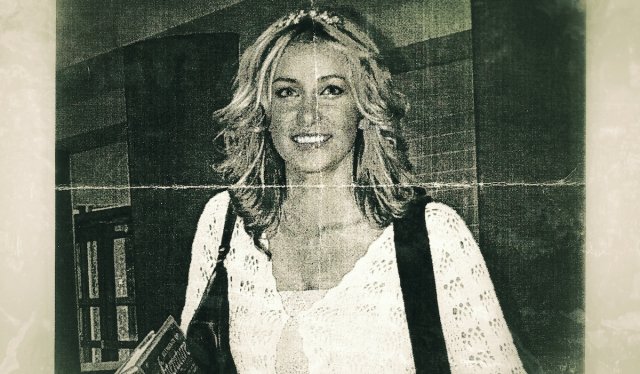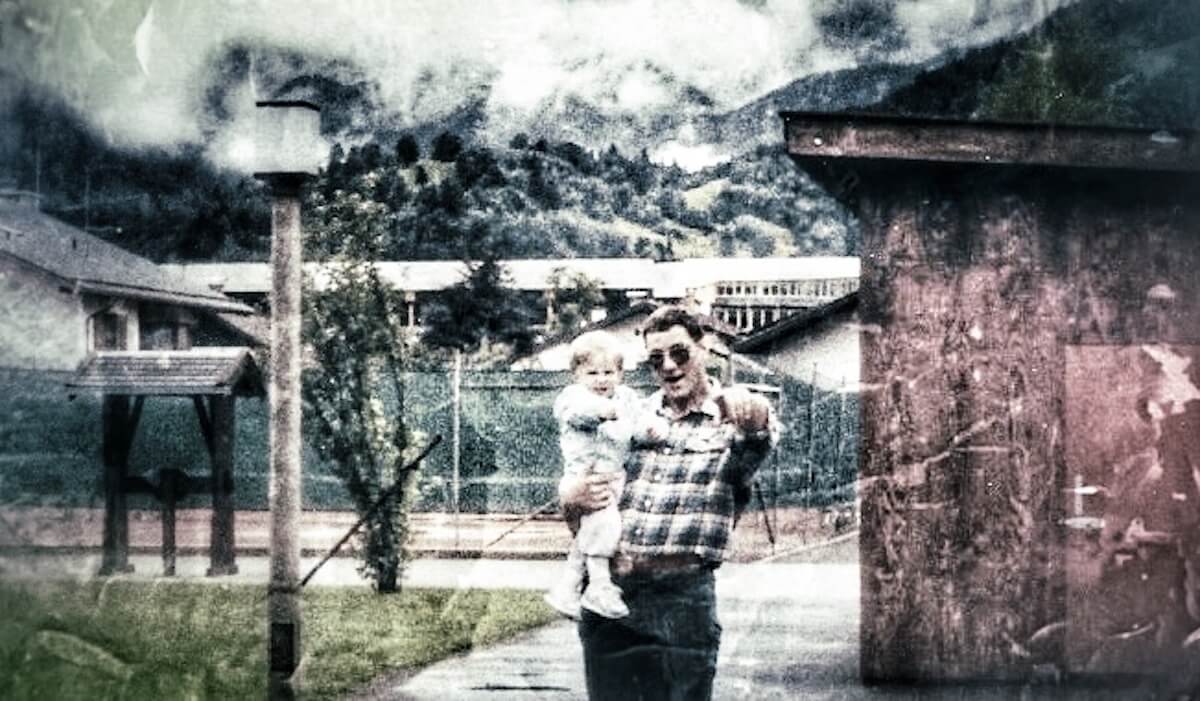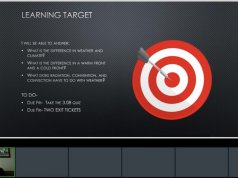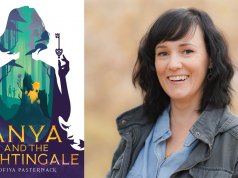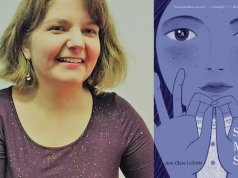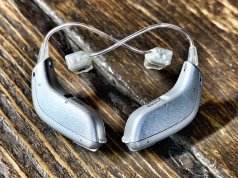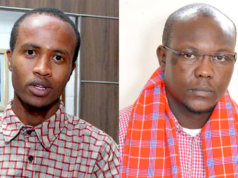
(Editor’s note: This is part two of a three-part series on living with disability titled “Biting Hearing Aids.” Read part one here and part three here.)
TISHOMINGO — I know the way it feels when a hearing aid shatters between your teeth. The crunch of plastic shell. Gritty springs and screws rolling across the molars.
Standing in the privacy of my bedroom, the pre-teen version of myself spat the remnants into a sock and tucked them into my chest of drawers. I don’t remember my exact age. Maybe 10, or 11. But old enough to recognize the complexities of being hard of hearing in a world split between the hearing and the deaf.
That was the day I began pretending to hear.
Seeking a cure
My mom rejected overtures to send me to the Oklahoma School for the Deaf, even though it was quite close to where we lived. She said I would grow up in a hearing world, and I needed to learn how to live in one.
I think she made the decision because she couldn’t bear the thought of being separated from me.
PART ONE
Chernobyl’s far-reaching impact: Life with disability not a linear path by Tiara Blue
Mom, not yet diagnosed for bipolar disorder with psychotic tendencies, already had issues with paranoia. She viewed my diagnosis as a threat, an excuse for others to take her baby from her arms. A deeply religious woman, she tried to cure me.
“The power of Christ compels you!” she’d cry out. Then she’d hock and spit on her fingertips and wedge them in my ears.
This was supposed to mimic Jesus’s miraculous healing of the blind man. My younger sister, Starlet, called it, “Christ’s wet willy.”
Mom tried variations of the spit cure. Plain old spit. Spit mixed with olive oil. (I drew the line at her more literal translation of the Bible’s text, mixing spit with dirt.) And each time she poked her wet fingers in my ears, I remember praying, Let me stay just the way I am.
Being deaf made me special. On a school playground where I had been invisible, it made me seen.
At 10 years old, when I had bit into my hearing aids and destroyed them, I wasn’t motivated by shame, but rather, practicality.
I had gotten glasses for near-sightedness. (Starlet, ever the acerbic 6-year-old, loved to call me the “knock-off Helen Keller”.) The combination of the glasses and the piggyback hearing aids pinched my ears, making the skin raw. So I chewed up my hearing aids.
I didn’t resent my deafness. I resented the remedy.
The magic bullet
I wouldn’t get another pair of hearing aids until I was 15 years old. Dad’s Tricare paid for them, which the audiologist labeled as “state-of-the-art machinery.”
I wish the audiologist had just skipped the whole “state-of-the-art” pitch, because that second time around, everyone expected a magic bullet. Suddenly, I was expected to hear every God-blessed word uttered even though I hadn’t heard complete language over half my life.
Even with the addition of hearing aids, I felt like a cryptographer trying to cipher a code, absent a key. Imagine speaking to a person, but every third letter is removed from the conversation: “I d_ no_ kn_w w_at _o d_ ab_ut _hi_ jo_. I r_al_y ne_d t_e m_ne_, bu_ I ca_no_ af_or_ th_ ga_ un_il _he _he_k c_me_.”
This is my life. Every frigging sentence, a puzzle.
I try to identify the missing pieces. Click them in place. Make some semblance of a coherent picture.
The result? I can never relax. Every interaction is a series of mental gymnastics, in which I am always one beam jump from smashing into my face.
But, as a young person, I didn’t know how to explain this.
Family members refused to watch shows with Closed Captioning because I needed “to learn how to hear like a normal person.” I’d get side-eye for turning up the music. And God forbid I ask people to repeat themselves. Then I’d hear a variety of refrains: “I thought you got those ‘state-of-the-art’ hearing aids,” — or — “Tiara, I don’t think you’re deaf. I think you got a case of selective hearing,” — or — “Ain’t you supposed to have, like, heightened abilities when you lose one of your five senses?”
People expected me to have some supernatural ability to read lips even though research indicates 60 to 70 percent of words are indistinguishable on lips. All I could do was shrug weakly and say, “I have a really great imagination.”
Truth be told, nothing felt heightened.
But I did have this rare ability to not get bored. To grow up deaf, deprived of language, is to fill the space — the minutes, the hours, the days — with dreams. If I had any heightened ability, it was the ability to not be lonely, to feel whole and safe inside my head.
Follow @NonDocMedia on:
Pretending to hear and the whisper game
High school is when the teasing began. Upon retrospect, I had myself to blame.
After puberty reared its ugly head in late middle school to early high school, I convinced myself the reason why boys didn’t want to date me was because I couldn’t hear. (Even with hearing aids, spoken language was a crapshoot.)
So I did what I thought was the only sensible thing. I pretended to hear.
It became a habit. Reading facial cues, hand gestures, body language. If someone looked sad or happy or angry, I tried to make the appropriate responses. Over time, my classmates picked up on the ruse.
In junior English, someone in my class started what later became called “the whispering game.” The game’s single objective? To make me look like a daggum idiot.
Someone would sit directly behind me and whisper my name. When I didn’t respond, the class would laugh. I couldn’t hear the whispers, but I could hear the laughter. It’s a decade and a half later, and I can still hear the laughter.
Although “the whispering game” was the most reoccurring theme, I was the butt of one other joke.
A little back-story: At the eighth-grade graduation dance, I felt beautiful. Mom let me wear lip-gloss for the first time in public. My baby sister, Christina, tucked little white flowers into my French braid. And Granny splurged on a lilac dress from Dillard’s.
None of the boys would dance with me. Nobody, except for a boy I’ll call Curtis.
He took me aside and said, “Girl, nobody dancing with you because you got that problem where you dance like a chicken.”
Apparently, I danced with my neck — and only my neck. I knew I should have been embarrassed, but instead, I busted up laughing.
We spent the next 15 minutes in the ballroom corner, him bopping me on the head every time I tried to bob my neck. He showed me how to move my feet after I accidentally stomped all over his shoes. He encouraged me to feel the music in my hips. And when I failed utterly, he started shimmying his own hips until we were both laughing so hard, people began to stare. And even though we didn’t like each other that way, we had fun.
Fast forward to junior year, we were standing beside the teacher’s desk. He was talking to me, but I couldn’t hear him.
He nodded his head, so I nodded my head. He laughed, so I laughed. Until, in a moment of confusion, I realized, behind me, a handful of boys were laughing too.
The bell rang. And as I stepped out the door, my best friend Lauren yanked me by the arm into the girl’s bathroom, and said, “Tiara, you’ve got to quit pretending to hear!”
Apparently, Curtis had made some inappropriate requests. Stuff of a sexual nature. And I, ever oblivious, had nodded along to every word.
I was angry. Humiliated. I wanted to hide in that bathroom stall for the rest of the day. But Lauren took my hand, and we walked out together.
I don’t blame Curtis. I don’t even blame the boys who egged him on. I blame a worldview that allows folks to see people like me as less human. Because if I’m a joke, there’s no guilt in laughing.
Varsity cheerleader. Straight-A student. Voted Best Dressed. It was never enough. I got the message — loud and clear — that I could be the girl boys looked at when they thought I wasn’t looking.
But I would never be the girl they flirted with. Asked on a date. Invited to Homecoming.
High school taught me that my identity — being deaf — the thing I had valued most about myself for so long now made me… well, weird.
It also taught me that accommodating a hearing world while living in a deaf one only served to leave me upended in both. If I’m damned if I do, and damned if I don’t, I might as well just be me.
Which raised a dilemma and a question I had no answer for: Who is that?









